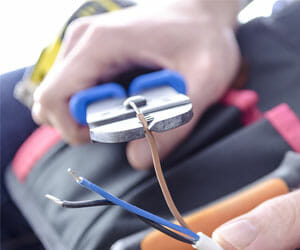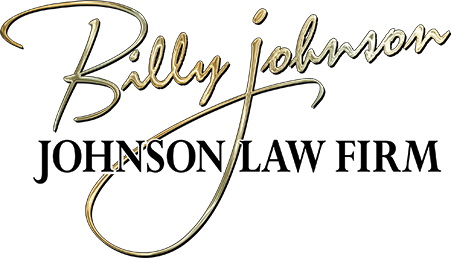Electrical Injury
Chances are, the last time you thought about electricity was either when you were afraid the power might go out in a strong storm or when you paid the electric bill
While electricity is a form of energy, it is not an energy source. It cannot be mined from the ground like coal or collected from motion like wind. Instead, it is manufactured from turbines turned by energy sources such as natural gas or water. It is transmitted to the outlets in our walls over a complicated network of transformers, power lines and substations.
Electric power is arguably the most important form of energy to humans, virtually defining modern living. The flip side to electricity is that it has the potential to be extremely dangerous. Exposure may cause no injury at all or result in devastating damage or death. Coming into contact with as little as 50 volts can cause a current to flow that can block the electrical signals sent between your brain and muscles, resulting in muscle spasms, inaccurate heartbeat and respiratory distress. The effect of an electric shock varies, depending on the size of the voltage, what parts of the body are involved, the length of time the current flows and whether the person is wet.
 Electricity naturally flows to the ground through anything that will conduct electrical current, such as water, copper and the human body. When electricity jumps from a wire, outlet or appliance and passes through the body, the current heats the tissue it contacts as it travels through. Sometimes the resulting burns cause surface damage, but more often tissues deeper underneath the skin are severely affected. The muscle spasms that come with some jolts can be strong enough to cause a bad fall, resulting in dislocations or broken bones. Contact with electricity can result in external burns, internal burns, cardiac arrhythmia, difficulty breathing, amputation, seizures, nerve damage, and impaired balance, as well as mental anguish, difficulty with attention, memory and concentration.
Electricity naturally flows to the ground through anything that will conduct electrical current, such as water, copper and the human body. When electricity jumps from a wire, outlet or appliance and passes through the body, the current heats the tissue it contacts as it travels through. Sometimes the resulting burns cause surface damage, but more often tissues deeper underneath the skin are severely affected. The muscle spasms that come with some jolts can be strong enough to cause a bad fall, resulting in dislocations or broken bones. Contact with electricity can result in external burns, internal burns, cardiac arrhythmia, difficulty breathing, amputation, seizures, nerve damage, and impaired balance, as well as mental anguish, difficulty with attention, memory and concentration.
About 1,000 people in the United States die each year as a result of electrocution (death caused by electric shock), and it is the fourth leading cause of work-related traumatic death.
On average, almost half of all occupational electrical fatalities happen each year because of contact with overhead power lines. Many electrocutions of electrical workers are caused by direct or indirect contact with live electrical equipment and wiring, including lighting fixtures, circuit breakers, control panels, junction boxes and transformers. Jobsite accidents and workplace hazards occur within all industries, though the top industries for fatal electrical accidents are construction, transportation, utilities, mining and manufacturing.
Another frequent cause of electrical injuries is a lack of ground-fault protection. Ungrounded faulty equipment anywhere can be a hazard, because you could become a connection to the ground for escaped electricity. Of course, even properly grounded power systems can quickly become unsafe due to extreme conditions or rough treatment. Using cords that are not 3-wire type, are not designed for hard-usage, or have been altered, increase the risk of contacting electrical current.
Some electrical equipment gets very hot while being used. So do those that are overloaded, faulty or incorrectly maintained. People who touch these heated objects can get a thermal burn.
Electrical equipment also can generate sparks that are strong enough to cause an explosion in certain environments where aerosols, gases or vapors exist. Even static electricity can cause an explosion if the conditions are right.
Some electrocution mishaps involve negligence, such as unsafe working conditions, insufficient safety training, and manufacture or design defects in equipment. If you have been injured in an electrical workplace accident, you may be entitled to benefits for your medical costs and lost wages. If you are the survivor of a loved one that was killed in an electrical burn accident, you may be able to recover funeral expenses as well as financial compensation for your pain and suffering. Because each case is different, it is always advisable to seek the counsel of an experienced lawyer who specializes in workplace injuries and wrongful death. Based in Pikeville, the Johnson Law Firm understands the risks associated with electrical equipment work and invites you to discuss your situation with us. Protect your rights by calling 606-437-4488 or using our online form. The initial consultation is free.



 William “Billy” Johnson grew up in the Dorton area of Pike County, Kentucky, and early on decided to stay in the beautiful Appalachian mountains. Like many others in Eastern Kentucky, Billy’s dad worked as a coal miner, a hard job but one that taught his son how to meet challenges head on and persevere. Attorney Billy Johnson has years of experience helping injured clients with claims such as car, truck, and motorcycle accidents, wrongful deaths, work injuries, and more. [
William “Billy” Johnson grew up in the Dorton area of Pike County, Kentucky, and early on decided to stay in the beautiful Appalachian mountains. Like many others in Eastern Kentucky, Billy’s dad worked as a coal miner, a hard job but one that taught his son how to meet challenges head on and persevere. Attorney Billy Johnson has years of experience helping injured clients with claims such as car, truck, and motorcycle accidents, wrongful deaths, work injuries, and more. [ 



